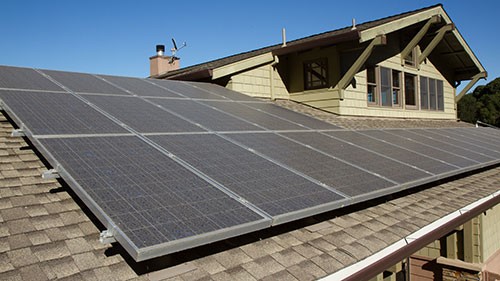Picking Up The Pieces After Storms Damage Your Home
Whether wind, snow, hail, or a hurricane damages your home, recovering from a storm is a complicated process. Even if the damage was minimal,...
Manage your everyday finances with convenient accounts, flexible cards, and personalized service designed to fit your life.
At First Federal Bank, we offer flexible mortgage solutions for almost any situation, helping you secure the right financing for your dream home.
Business banking offers secure financial management, streamlined transactions, credit options, and tools to help businesses grow efficiently and sustainably.
2 min read
First Federal Bank : January 22, 2021 10:00:00 AM EST

 Having a connected home offers a broad range of benefits that include unparalleled convenience, increased efficiency, and superior security. On top of all this, upgrading your home with smart devices can also have the benefit of earning discounts on your homeowners or renters insurance.
Having a connected home offers a broad range of benefits that include unparalleled convenience, increased efficiency, and superior security. On top of all this, upgrading your home with smart devices can also have the benefit of earning discounts on your homeowners or renters insurance.
What smart home devices are eligible?
You shouldn’t expect to receive a discount on your insurance if you have a device like an Amazon Echo or Google Home. While these gadgets are great in many other ways, they won’t lead to a reduction in insurance costs. You likely also won’t qualify discounts for devices like smart bulbs or smart plugs even though they help increase efficiency.
According to The Simple Dollar contributor Drew Page, only a handful of device types currently tend to qualify for discounts with certain insurance providers. These devices include wireless security systems, smart doorbells with video capability, connected smoke detectors, water and gas shutoff sensors, and smart thermostats. If you have one or more of these devices, contact your insurance provider and see what discounts they offer and learn if your device qualifies.
Like all smart devices, these five present advantages in terms of convenience and peace of mind. Wireless security systems allow you to keep an eye on your home while you’re away, protecting you in the event of a robbery or home invasion. Smart water and gas shutoff sensors guard against flooding and gas leaks by notifying you when issues arise and enabling remote action. Because they can mitigate risk for insurers, you may stand to benefit with a lower premium.
The potential risks of sharing your data
As Page points out, the rewards of using smart devices are not without risks. The same can be said of following up with your homeowners or renters insurance provider to earn discounts on your premium. Chief among these concerns is providing companies with access to your data.
Page points to a 2016 article in MarketWatch from contributor Kari Paul, which calls into question the motivation of insurance companies. Many companies have forged partnerships with smart device brands, passing on discounts on devices and installation as well as possible discounts on your premium. Paul suggests this might allow insurance companies to monitor your behavior and penalize you for how you use devices, potentially increasing your premium.
There’s also the concern of responsibility in the event of a data breach. Page states the responsibilities of companies that collect your data are not clear or particularly well-defined, which could leave you in peril if your data is stolen by hackers.
Upgrading your home with smart devices is generally a sound decision, particularly if you want an added sense of security and convenience. If you’re interested to see how you could further with discounts on devices, installation, and your insurance premiums, contact your insurance provider.

Whether wind, snow, hail, or a hurricane damages your home, recovering from a storm is a complicated process. Even if the damage was minimal,...

It’s easy to fall in love with the grandeur of a home or the amenities and hip location of an apartment or condominium. So easy, in fact, it may...

You want your home to be as comfortable, efficient and as beautiful as it can be. However, deciding which home improvement projects or upgrades to...
Manage your accounts, make payments, and more.
Open an account with us.